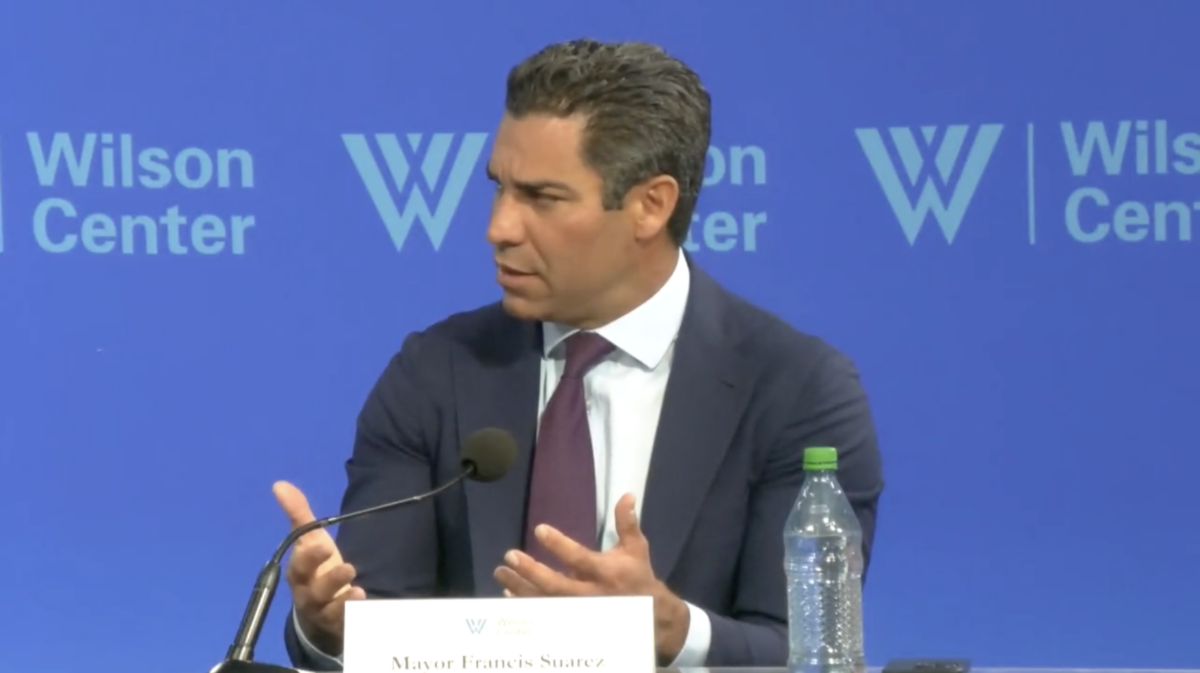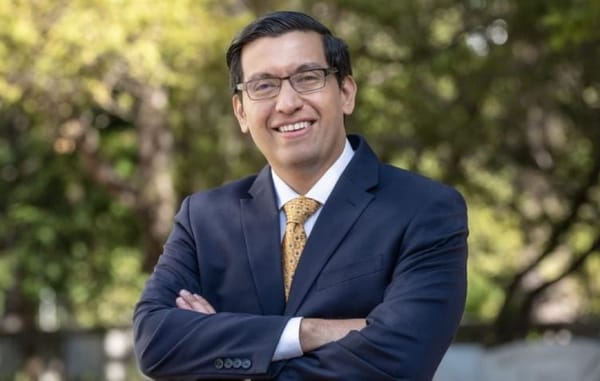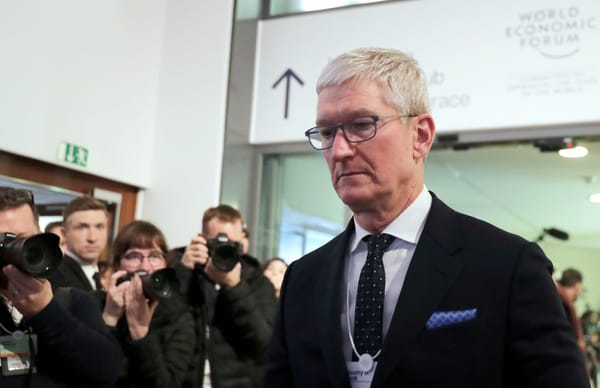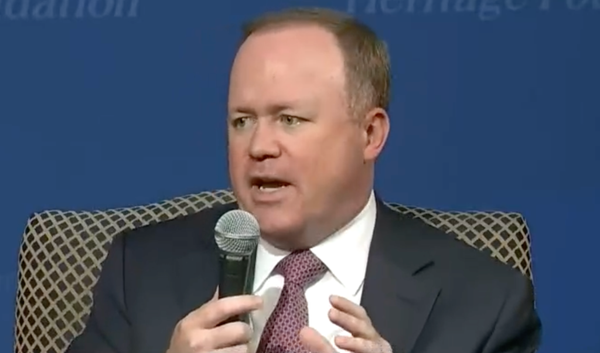Cryptocurrency Has Promise But ‘Screams for Regulation,’ Says Miami Mayor Francis Suarez
The mayor has been an enthusiastic proponent of MiamiCoin, a privately-owned cryptocurrency.
Em McPhie

WASHINGTON, January 19, 2023 — Embracing emerging technologies such as cryptocurrency will have long-term benefits for the general public, but the industry needs much stronger regulation, City of Miami Mayor Francis Suarez said at an event hosted Tuesday by the Wilson Center.
Suarez, who is president of the U.S. Conference of Mayors, spoke in advance of the mayors’ 91st annual meeting from Tuesday until this Friday.
Suarez has long been an advocate for cryptocurrency adoption; after winning reelection in 2021, he announced that his own salary would be paid in bitcoin. He has also been an enthusiastic proponent of MiamiCoin, a privately-owned cryptocurrency meant to benefit the city — even after the currency’s value dropped by more than 95 percent.
However, when discussing the recent collapse of crypto exchange FTX, Suarez acknowledged that the technology “screams for regulation.” U.S. legislation tends to be reactive instead of proactive, but the latter approach might have been able to stop the FTX crash, he added.
“I think there should have been regulation on what some of these custodial entities could do with custody assets,” he said. “They’re like banks — the kind of assets that they had were enormous — and what they were doing when you when you peel back the layers of the onion is frightening… there’s a reason why some level of regulation exists already in the banking industry.”
Suarez said that the first step for lawmakers taking on cryptocurrency regulation should be to recognize the significance of the technology. Issues such as the national debt ceiling and rate of inflation demonstrate the value of having currency “outside of the mainstream fiat system,” he said.
In addition to cryptocurrency, Suarez expressed his opinion on a variety of other timely technology issues.
“I think AI is going to be our generation’s arms race,” he said, noting the growing potential for cyberwarfare as weapons systems come to rely on encrypted technology.
Suarez also discussed the impacts that an increasingly digital world may have on childhood development. “My daughter one shocked me when she was two years old — she’s four now — by taking a pretend selfie with her pacifier of me,” he said. “And I was like, wow, this is really crazy.”
Despite having initial concerns about technology’s impact on children, Suarez said that watching his own children’s online interactions had assuaged his fears.
“I’m actually going to take it a step further — I’m starting to see socialization opportunities… they’re actually virtually online with a friend, and they’re playing and talking and socializing,” he said.









Member discussion